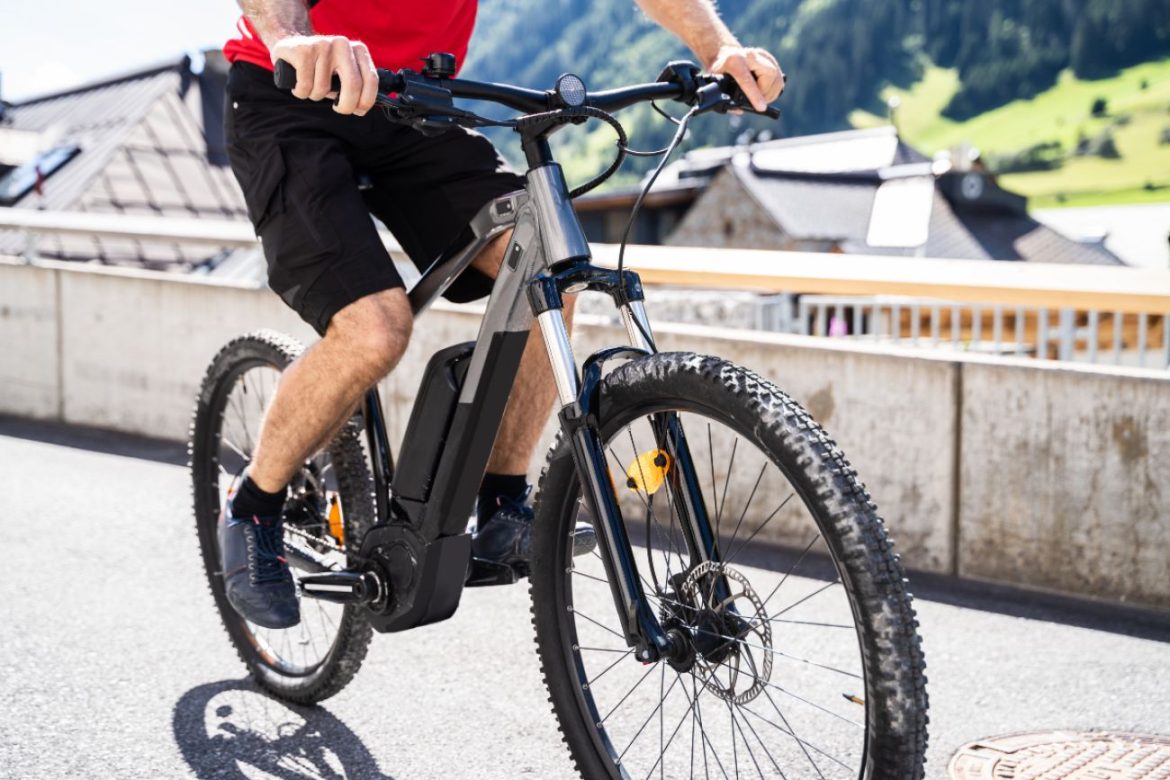By Gabrielle Nelson

In Michigan, e-bikes are banned from state-managed dirt trails, and some e-bikes are banned from paved trails. Image: Shutterstock
Electric bicycle use is expanding, welcoming a new group of riders to the cycling community. But under current Michigan state park policies, the bikes are banned from many trails.
That could soon change.
The Department of Natural Resources has proposed a yearlong pilot program that would open 3,000 miles of trails to e-bikes.
The change could take effect as early as July.
The DNR proposal has divided the biking community, with some lauding it as a positive change that prioritizes people who may be unwilling or physically unable to ride a pedal-powered bicycle, while others fear e-bike riders will damage and overcrowd trails.
“A lot of folks are very worried about what they’ve grown to love and fought for and helped build over the last 30 to 35 years here in Michigan is going to get eroded and taken away by this whole new user group,” said Neal Glazebrook, the events director for the League of Michigan Bicyclists.
There are three classes of e-bikes:
- Class 1: Pedal-assist only, maximum speed of 20 miles per hour, limited to 750 watts or less
- Class 2: Pedal-assist and throttle-assist, maximum speed of 20 miles per hour, limited to 750 watts or less
- Class 3: Pedal-assist only, maximum speed of 28 miles per hour, limited to 750 watts or less
The proposed policy would replace an existing one under which Class 1 e-bikes, which are pedal-assisted and top out at 20 miles per hour, are allowed on paved or crushed limestone trails, while e-bikes of all stripes are allowed on DNR-managed roads, bike lanes and motorized natural trails like ORV trails.
That leaves out thousands of miles of natural-surface trails, such mountain-biking trails. The new policy would open those to all Class 1 e-bikes, and Class 2 bikes with a use permit.
Such trails would remain off-limits to Class 3 bikes, which reach top speeds of 28 miles per hour.
“We’re constantly looking at ways to make improvements to our programs, so in the Parks and Recreation Division we have an obligation to make sure that our facilities and our programs are open and available to all individuals, regardless of their abilities,” said Nicole Hunt, a regulatory unit manager with the DNR.
Hunt said research in other states has shown that e-bikes cause no more damage to public trails than regular pedal bikes.
Arkansas and North Carolina, both of which have active mountain biking communities, have opened their trails to e-bike users, and “no one’s really seeing the negative impacts that everyone’s worried about,” said Glazebrook.
During a recent state Natural Resources Commission meeting, Hunt shared results of a DNR public opinion survey about the proposed policy. Of 6,000 respondents, 54% supported the policy change and 41% opposed it.
If the proposal is enacted, signs indicating e-bike use will be placed at trailheads, along with a QR code where people can give feedback. That way, if an issue arises, Hunt said, it can be addressed and corrected.
Glazebrook said those opposed to the change should give the policy a chance.
“There’s this big fear that all the elite athletes in the state go buy e-bikes and ride at 30 miles an hour around the trails. That’s not who I see using these bikes,” he said.
“I see people with MS, with heart conditions, folks that maybe had both their hips and knees replaced — this is just a little assistance to keep them active,” he said.
Gabrielle Nelson has an environmental reporting internship under the MSU Knight Center for Environmental Journalism’s diversity reporting partnership with the Mott News Collaborative. This story was produced for Bridge Michigan.
